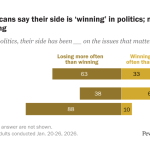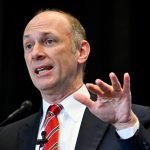Murphy, 40, of Charlotte, and Smith, 46, of New Jersey, had both obtained a fraudulent PPPs loan on behalf of their purported janitorial and cleaning services companies. As of today, 22 defendants have now been sentenced to prison for their role in the scheme. To date, an additional nine defendants have pled guilty to this scheme in the Eastern District of North Carolina and are awaiting sentencing.
“This is the latest in a series of defendants involved in a national conspiracy to steal taxpayer money meant to be a lifeline to our nation’s most vulnerable businesses during a global pandemic,” said U.S. Attorney Michael Easley. “Even though the pandemic is behind us, we are working closely with our partners at the IRS to identify, investigate and prosecute cases of fraud to put cheats behind bars and recover taxpayer money.”
According to the filed charges and information summarized in court, Smith and Murphy had conspired with Edward Whitaker, Schunda Coleman, and others to obtain fraudulent PPP loans. Whitaker and Coleman pled guilty on January 19, 2023 for their role in operating a nation-wide scheme to help people across the country commit millions of dollars of PPP fraud from their home in Texas.
Whitaker and Coleman created fraudulent supporting documents and applications for each PPP loan in exchange for 25% of the total loan proceeds. The fraudulent applications grossly inflated the number of employees and wages being paid prior to the COVID-19 pandemic by backdating fraudulent IRS forms. Following the disbursement of the PPP loans, Whitaker gave each defendant, via text messages subsequently obtained by law enforcement, detailed instructions as to how to make it appear that the PPP loans were being paid out to employees. In reality, most or all of the money was transferred back to the defendants. The fraudulent payroll records were then submitted to the Small Business Administration (SBA) to obtain 100% loan forgiveness.
“The Paycheck Protection Program was designed to help small businesses facing financial difficulties during the COVID-19 pandemic,” said Donald “Trey” Eakins, Internal Revenue Service
(IRS) Criminal Investigation Special Agent in Charge in the Charlotte Field Office. “Through our partnership with the U.S. Attorney’s Office and our federal law enforcement partners, IRS Criminal Investigation Special Agents will continue to aggressively pursue individuals who try to exploit federal relief programs for their personal gain.”
Defendants that have been sentenced so far include:
- Albert Eugene Miller, Jr. [Case No. 5-22-CR-00290-D]
- Jonathan Fleming [Case No. 5-22-CR-00337-D]
- Nekita Hooks [Case No. 5-23-CR-00025-D]
- Shakeerah Kaneisha Yvette Vinson [Case No. 5-23-CR-00027-D]
- Denise Coit Alston [Case No. 5-23-CR-00077-D]
- Terron Cortez Parker [Case No. 5-23-CR-00081-D]
- Monica Faye Barnes [Case No. 5:23-CR-00094-D]
- Dontrell Barnes [Case No. 5-23-CR-00094-D]
- Kami D. Woodard [Case No. 5-23-CR-00095-D]
- Isaac Lamont Dawson [Case No. 5:23-CR-0097-D]
- Irene Edwards [Case No. 5-23-CR-00098-D]
- Jackson Ndoyo [Case No. 5-23-CR-00118-D]
- Lenille Woodard [Case No. 5-23-CR-00138-D]
- Natosia Jerome Jenkins [Case No. 5:23-CR-00167-D]
- Teresa Ann McRae [Case No. 5:23-CR-00313-D]
- Delvin Dashavone Felder [Case No. 5:23-CR-00198]
- Shun Lamont Gibbs [Case No. 5:23-CR-00346-D]
- Karim Aziz Razzak [Case No. 5:23-CR-00324]
- Anthony S. Whitaker [Case No. 5:23-CR-00311-D]
- Darian Casteele Tyler [Case No. 5:23-CR-00338-D]
Defendants awaiting sentencing include:
- Quentin Jackson [Case No. 5-23-CR-180-D]
- Edward Whitaker [Case No. 5-22-CR-00257-D]
- Schunda Coleman [Case No. 5-22-CR-00257-D]
- Ayyub Abdur Rasheed [Case No. 5:23-CR-00314-D]
- Ronald L. Jones [Case No. 5:23-CR-00339-D]
- Everett M. McBride [Case No. 5:24-CR-00036-D]
- Hanif Abdul-Hakim [Case No. 5:24-CR-00109-D]
- James Elton Watson Case No. 5:23-CR-00323-D]
- Shara Monique Wells [Case No. 5:23-CR-00323-D]
The Coronavirus Aid, Relief, and Economic Security (CARES) Act was designed to provide emergency financial assistance to the millions of Americans who were economically suffering from the COVID-19 pandemic. The CARES Act and additional appropriations authorized up to $649 billion in forgivable loans to small businesses through the Paycheck Protection Program (PPP). Financial institutions issued the PPP loans, which were guaranteed by the SBA.
Michael Easley, U.S. Attorney for the Eastern District of North Carolina, made the announcement after
Related court documents and information can be found on the website of the U.S. District Court for the Eastern District of North Carolina or on PACER by searching for case numbers 5:24-CR-00072 and 5:23-CR-00312-D.
###










